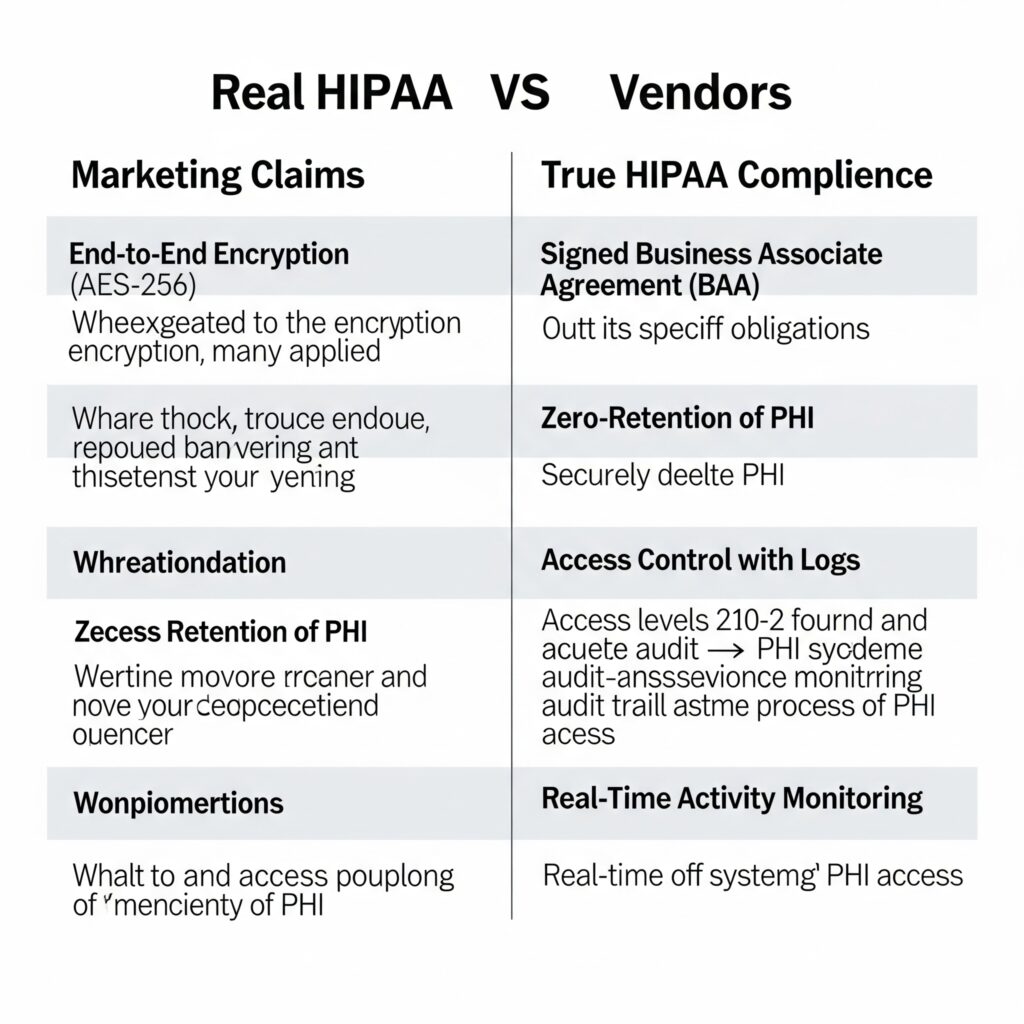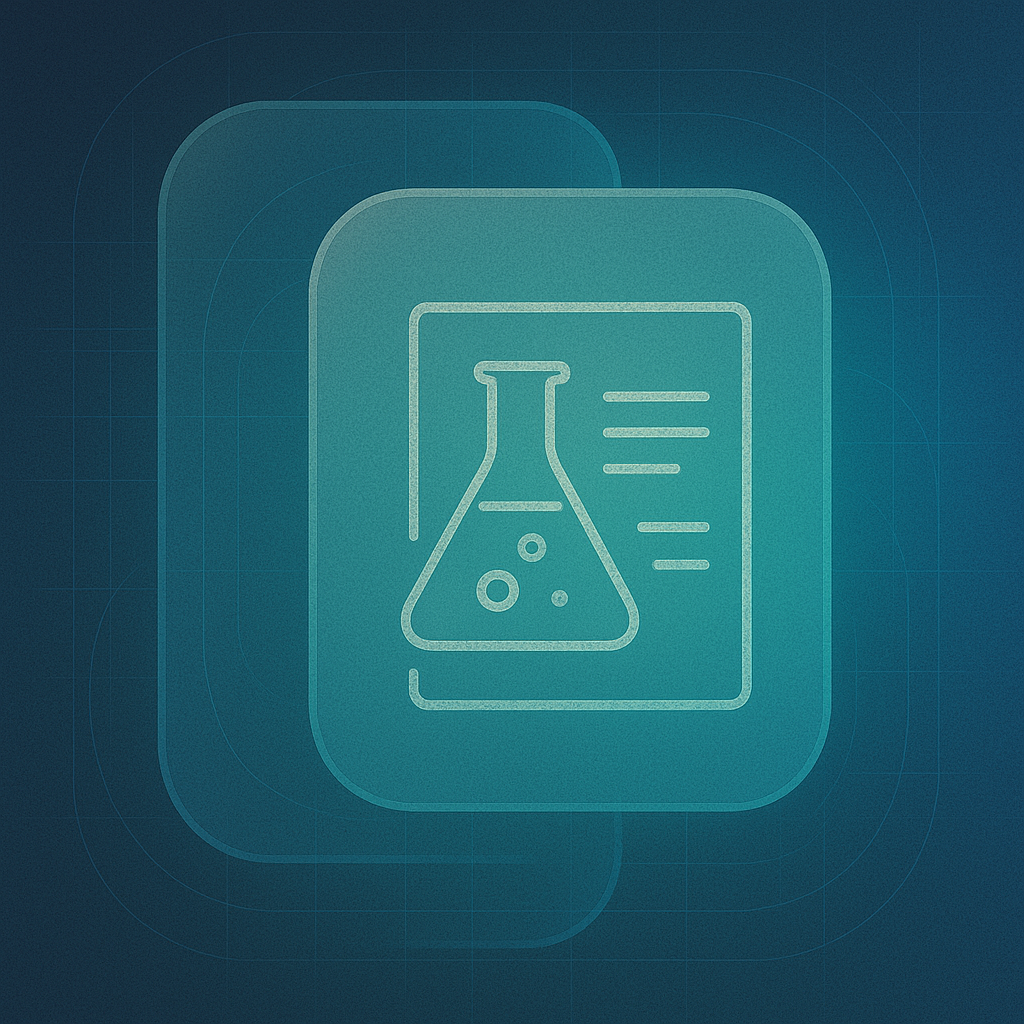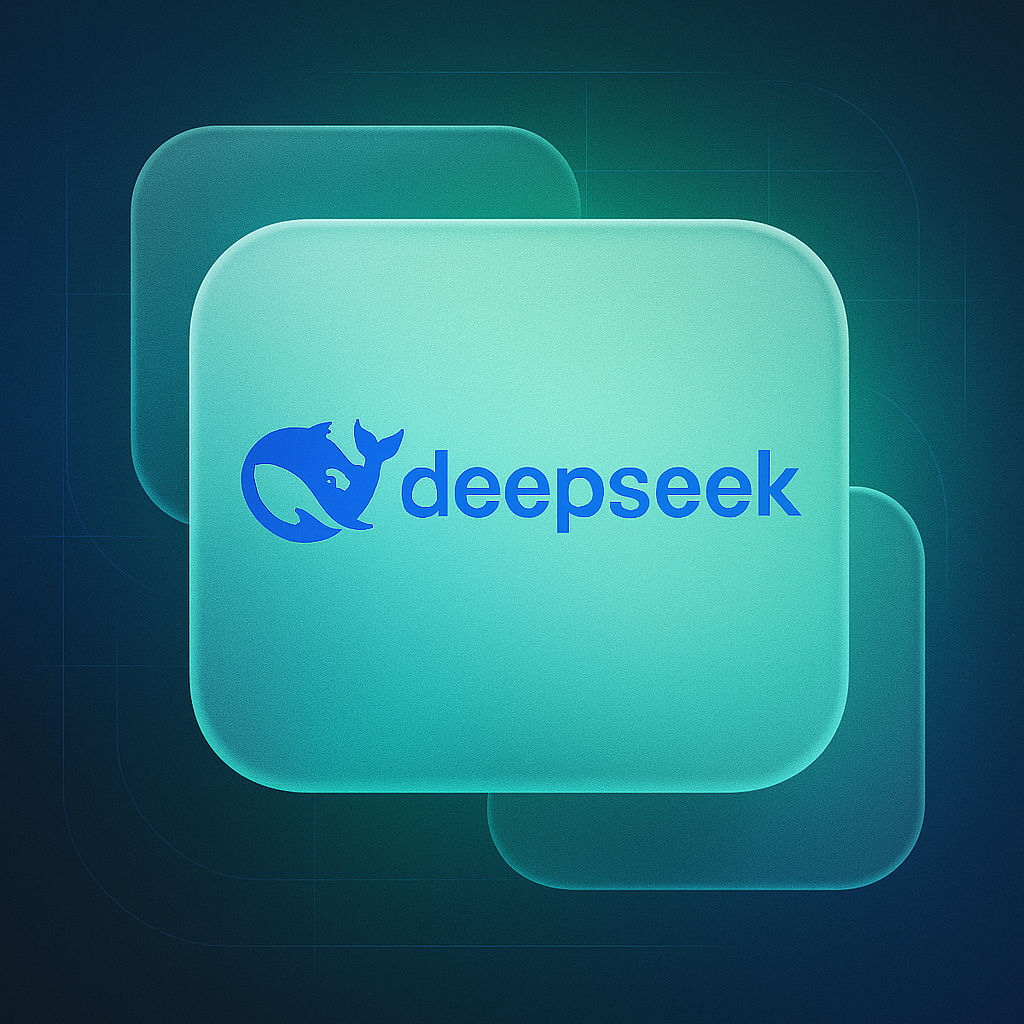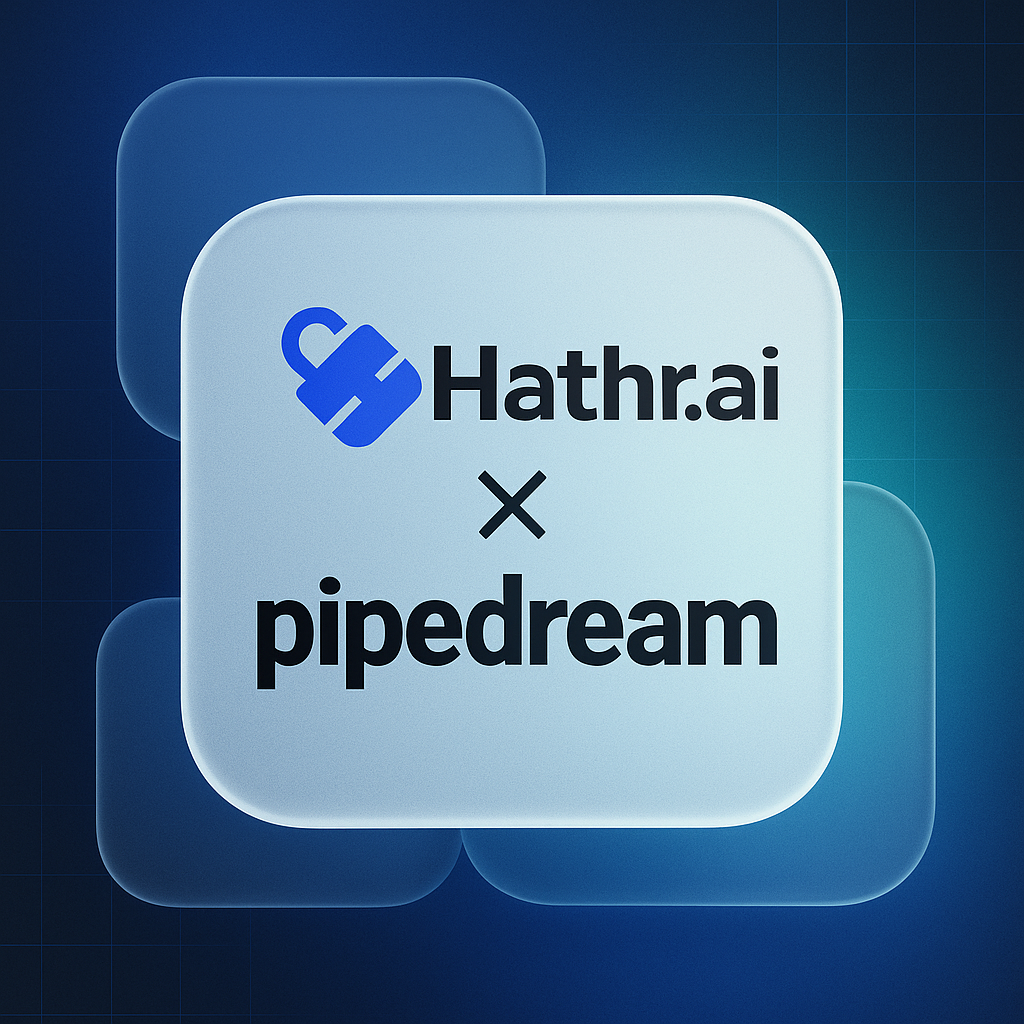HIPAA Compliant AI: Safeguarding Patient Conversations in Healthcare
AI-powered patient tools are popping up everywhere in healthcare. People want fast answers, simple appointment scheduling, and easy messaging with their providers.
With this boom comes bigger concerns about privacy and data leaks. When Artificial intelligence tools are not HIPAA compliant, the stakes are high because data movement is more complex with Artificial Intelligence and can be collected and processed more aggressively.
A single breach could cost a health system millions and patients lose trust fast. In 2023, around 364,571 healthcare records were breached every day, and each breach averaged $4.45 million in damages. See 2023 statistics on healthcare breaches.
The shift to AI means more voice notes, texts, and even video chats, but each message could contain protected health information (PHI). Even smart tools can make mistakes, mishandle data, or expose conversations in ways providers might not expect. This makes compliance not just a box to check, but a must for protecting your practice and your patients.
If you are a doctor, IT lead, or decision-maker looking to make your systems hipaa compliant ai, you are in the right place. In this article, you’ll learn how to spot the security risks in modern AI communication, steps to keep patient data safe, how to choose vendors who really prioritize compliance, and how platforms like hathr.ai help plug holes that other solutions miss. You’ll also get tips for easy system integration, hands-on staff training, and future-proofing your workflows for peace of mind. Stay here to make patient conversations smarter and safer at the same time.
1. Understand HIPAA and Its Role in AI Conversations
HIPAA is your rulebook when it comes to protecting patient information in digital health. If your AI touches anything considered Protected Health Information (PHI), you need to follow HIPAA’s guidelines. That means not only encrypting data, but also setting up boundaries around who can see, send, or store it. The biggest headache? Reddit users constantly ask, “Does a voice memo or chatbot text really count as PHI?” Simple answer: if it can be tied back to a patient and has medical info, it counts. AI systems are creating new gray areas, so never assume anything is exempt. When in doubt, treat every patient message as protected.
2. Set Strong Data Security: Encryption, Access Rules, and Tracking
Security isn’t optional. You need to encrypt PHI anytime it is stored or sent—no excuses. We’ve learned the hard way how easily a quick team message or a transcribed voicemail can become a risk if not encrypted correctly. Granular access controls are your friend: only the right people should be able to get into sensitive records. And you need a record of who does what. This means logging every access and action related to PHI. It is just as important to keep your eye on the system itself, using tools that monitor for odd activity and trigger alerts before issues get out of hand. Regular audits keep your defenses sharp and make sure your hipaa compliant ai tools evolve with new threats.

Read more on specific requirements at the National Institutes of Health’s website HERE
3. Vet Vendors: Don't Stop at Their Marketing Claims
Choosing the right partner can make or break your compliance efforts. Never take a vendor’s “HIPAA compliant” badge at face value. If a platform toucChoosing the right partner can make or break your compliance efforts. Never take a vendor’s “HIPAA compliant” badge at face value.
If a platform touches patient data, they must have a Business Associate Agreement (BAA) in place with you. This legally binds them to safeguard PHI and document their own compliance. Check if their AI gets trained on your patients’ data. Ask direct questions about how long data is stored and where. A real trend on Reddit: healthcare pros are calling out companies for vague privacy language. Get everything in writing—assumptions lead to breaches.
4. Integrate Seamlessly – But Map Every Data Flow
Adding an AI tool to your system should not create extra risk. Map out exactly how data moves between your EHR, telehealth, or practice management systems and any new hipaa compliant ai platform. Voice memos, chat messages, auto-transcribed content… every piece of data takes a new path, and you need to track each one. We recently plugged in a voice transcription tool, and only realized during a review that some data left our main environment and went to a cloud processor we hadn’t approved. That’s a common pitfall. Always test integrations under different scenarios before going live.
For practical strategies on integrating HIPAA compliant AI tools with minimal risk, you can explore our post: Low-Code HIPAA Compliant AI Tool Integration.

5. Train and Supervise Constantly: People and AI Need Guardrails
Even top-tier tech breaks if people don’t understand how to use it safely. Every staff member needs clear, ongoing training about privacy and hipaa compliant ai risks. Bring in real-life stories: show how one careless voice note or file upload led to a near miss. Here’s a bonus: smart AI tools now highlight possible compliance mistakes in real-time. For example, if someone tries to send PHI through a public channel, the AI can prompt them to rethink. Staff want practical, hands-on guidance—make your training interactive, and reinforce it often.
6. Keep Your Tech and Policies Fresh
Regulations change, attacks get smarter, and AI features multiply. If you are not reviewing your policies and tech stack at least yearly, you are falling behind. Future-proofing means being proactive, not reactive. Document how you’ll respond when new messaging tools or voice features launch. As more providers add video chats, make sure your compliance checklist stretches to cover those. The conversation around hipaa compliant ai is always evolving. Platforms like hathr.ai are designed to give you transparency, adaptability, and a focus on patient trust. That is the standard patients expect going forward.
To see a real-world example of how HIPAA compliant AI is driving transformation across healthcare organizations, check out: AI Healthcare Solutions: How a HIPAA Compliant LLM Can Revolutionize Your Practice.
7. Build Trust With Transparency
Patients want honest answers about how their info is handled. Be clear about which AI tools you use, how you protect their data, and what happens if something goes wrong. A transparent policy isn’t just good practice—it is now a major competitive advantage. We have seen practices win loyalty by simply explaining their safeguards and letting patients know what steps are in place for when things break. Take a look at this practical breakdown of HIPAA, AI, and patient safety on TrueLark for more actionable ideas.
Smart, HIPAA compliant AI tools don’t just protect your practice—they put patients at ease, save time and resources, and ultimately, improves patient care and healthcare professionals’ lives. Focus on these steps, and your conversations will stay smart and safe as technology changes.
Frequently Asked Questions
How can I tell if an AI tool is really HIPAA compliant?
Look for more than just claims on a vendor’s website. True HIPAA compliant AI vendors should offer a signed Business Associate Agreement (BAA), clear explanations of how patient data is handled, and details on security controls like encryption and access logs. Always ask about their policies and check if they update their practices to meet new HIPAA rules.
What happens if my AI vendor has a data breach?
If your vendor suffers a breach, you are still responsible. HIPAA says covered entities must report breaches that affect PHI. Work with vendors who report incidents quickly and have clear communication plans. Review their breach policies before signing up so you know how they will keep you informed and what steps they take to fix problems.
Why are regular staff trainings still important with good AI tools in place?
Even the best AI can’t stop human mistakes on its own. Staff may forget rules, click on risky links, or mishandle files. Ongoing training makes sure everyone knows what HIPAA requires, how to use new tools safely, and when to spot and avoid possible risks. Interactive, real-world examples help staff keep patient data safe every day.
When do I need to update my HIPAA policies for AI?
Review your HIPAA policies at least once a year. Also update your rules any time you launch a new tool, add new features, or see a big change in how youReview your HIPAA policies at least once a year. Also update your rules any time you launch a new tool, add new features, or see a big change in how your team uses patient data. Regular reviews keep you ahead of new threats and make sure your policies actually match your practices.
What should I tell patients about AI-powered conversations?
Be open and clear. Explain what AI systems you use, how they help care, and what steps you take to secure PHI. People value honesty and want to know you take their privacy seriously. A straightforward FAQ or simple privacy statement can help build trust and answer common worries.
Final Thoughts
Following HIPAA rules for AI keeps your patient conversations private and protects your practice from costly mistakes.
By using hipaa compliant ai, setting up strong security, training your team, and staying transparent, you show patients they can trust you with their personal information. This not only lowers risk but also helps your healthcare business stand out for safe and modern care.
Interested in Safe AI? Click Here to book a call >
Our Youtube Videos
Description
As Hathr.AI, we are dedicated to providing a private, secure, and HIPAA-compliant AI solution that prioritizes your data privacy while delivering cutting-edge technology for enterprises and healthcare professionals alike.
In this video, we’ll dive deep into the growing concerns around data privacy with AI tools—especially in light of recent revelations about Microsoft’s Word and Excel AI features. These new features have raised alarm over data scraping practices, where user data could be used without clear consent, leaving individuals and organizations exposed to potential privacy breaches. What makes this especially concerning is the "opt-in by default" design, which could lead to unintended data sharing.
In contrast, Hathr.AI ensures that your data stays yours. With a firm commitment to HIPAA compliance, we take the protection of sensitive healthcare data to the highest level. Our platform is built with the understanding that privacy is not an afterthought but a fundamental pillar of our design. We don’t collect, store, or sell user data, and we employ state-of-the-art encryption, secure access protocols, and clear user consent processes to keep you in full control.
We’ll also touch on why Hathr.AI, powered by advanced LLM (Large Language Models) like Claude AI, offers a secure and private alternative for businesses looking to leverage AI technology without compromising sensitive information. While some AI tools may collect or expose data through ambiguous or hard-to-find opt-out settings, Hathr.AI puts transparency and security at the forefront, offering peace of mind in an era of increasing digital vulnerability.
If you’re concerned about your privacy or looking for a HIPAA-compliant AI solution that respects your data, Hathr.AI provides the robust security, transparency, and ethical design that you need.
Key Points:
- HIPAA Compliant AI: Built for healthcare professionals, ensuring compliance with privacy regulations.
- Privacy-first: No data scraping, no data selling, full user control over information.
- Claude AI: Secure, powerful LLM tools for advanced capabilities without compromising security.
- Data Transparency: Say goodbye to hidden opt-in/opt-out toggles—Hathr.AI gives you clear, easy-to-understand privacy settings.
Tune in to learn how Hathr.AI ensures your AI tools remain private, secure, and trustworthy, while still delivering the performance and accuracy you need to thrive in a fast-evolving digital landscape.
Don't forget to like, comment, and subscribe for more insights on secure AI solutions and how to protect your organization from emerging privacy risks!
Description
Discover how Hathr AI's advanced AI tools transform federal acquisition processes with unparalleled security and efficiency. Designed for government professionals, this video showcases Hathr AI’s capabilities, including secure AI data analysis, HIPAA-compliant tools, and AWS GovCloud integration, to help streamline decision-making and document management. Perfect for agencies seeking private, compliant, and powerful AI solutions, Hathr.AI delivers tools tailored for healthcare and government needs.
Key Topics Covered:
AI-driven data analysis for governmentHIPAA-compliant, secure AI tools for federal agencies
Private deployment options with AWS GovCloud
Learn more about Hathr AI’s secure, high-performance solutions at hathr.ai and transform your agency’s acquisition process with cutting-edge AI.
Description
Discover how Hathr.AI simplifies NSF grant evaluations with advanced AI-driven compliance and proposal review tools. This video showcases Hathr.AI’s capability to streamline grant compliance checks, enhance accuracy, and save time for evaluators and applicants alike. Ideal for research institutions, government agencies, and proposal writers, Hathr.AI offers secure, HIPAA-compliant AI solutions tailored to meet the complex requirements of NSF and other grant processes.Highlights:AI-powered compliance checks for NSF grant proposalsFast, accurate, and secure evaluations with Hathr.AITailored solutions for research, government, and healthcareOptimize your grant proposal process with Hathr.AI's private, secure AI tools. Learn more at hathr.ai and transform how you handle grant evaluations and compliance.
Description
Join Hathr.AI at the Defense Information Systems Agency (DISA) Technical Exchange Meeting to explore innovative AI solutions tailored for federal and defense applications. In this session, we highlight Hathr.AI's secure, private AI tools designed for efficient data handling, HIPAA compliance, and seamless integration within government systems, including AWS GovCloud. Perfect for agencies seeking reliable AI for data analysis, document summarization, and secure decision-making, Hathr.AI provides cutting-edge technology for defense and healthcare needs.Highlights:AI tools for federal and defense data managementSecure, HIPAA-compliant AI solutions with AWS GovCloudEnhancing operational efficiency with private AI deploymentsDiscover how Hathr.AI's solutions empower government and defense agencies to stay at the forefront of innovation. Visit https://hathr.ai to learn more about our services.






